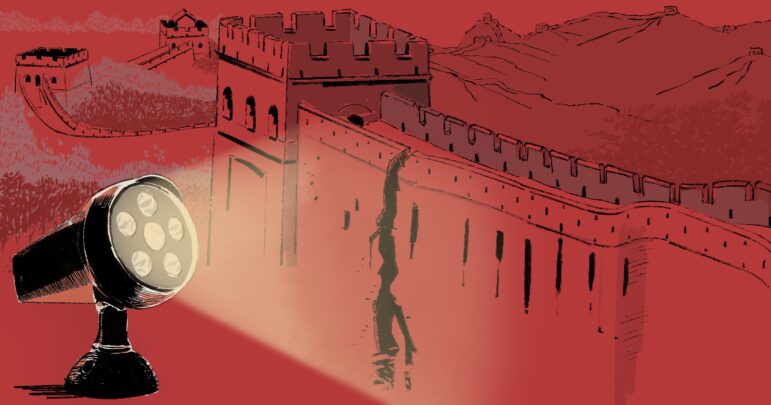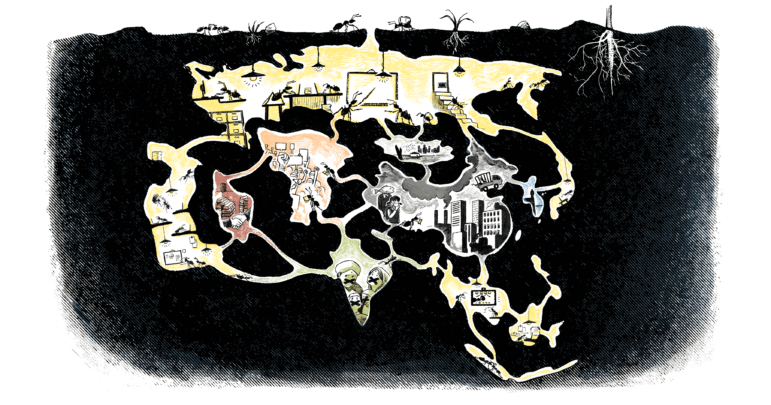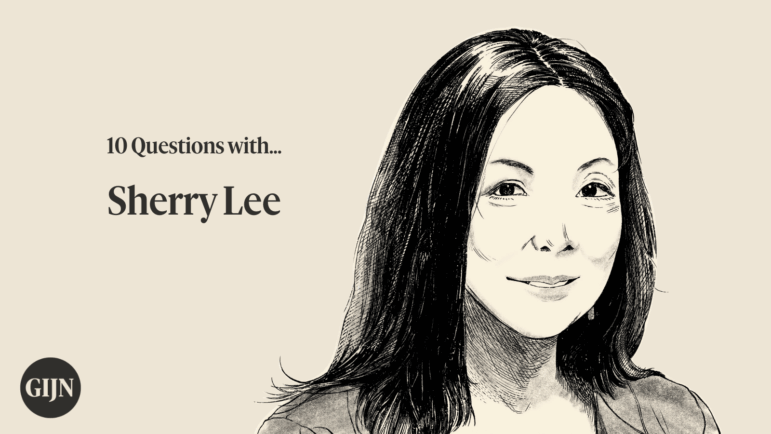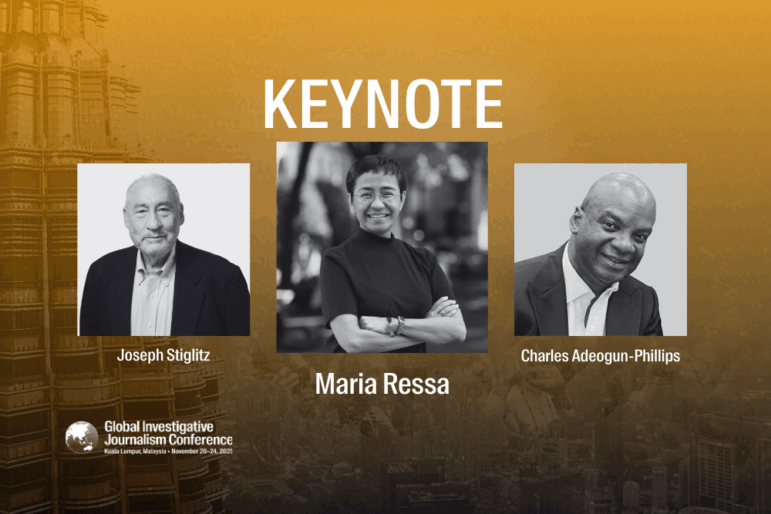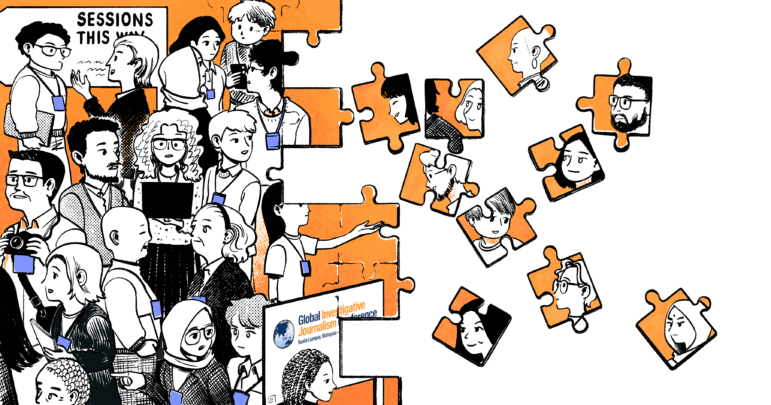

Illustration: Nyuk for GIJN
‘Our Task as Journalists is to Turn on the Light’: Asian Investigative Journalism Steps Into Focus at GIJC25
Increasingly threatened by authoritarian regimes, Asia has suffered an accelerating slide in press freedoms, and is now home to five countries ranked as dire environments for independent journalism that are also among the world’s 10 most populous nations.
Facing challenges from environmental exploitation to state repression and human trafficking — and, increasingly, as the center of economic power and new technologies in the world — there is no region in greater need of new pathways to public interest information, and of the full support of the global investigative journalism community. Despite harassment, extreme financial pressures, and sometimes exile, Asia’s investigative journalism community has not only survived, but inspired global peers with pioneering outlets, impactful scoops, and resilience in the face of repression.
But the stakes and threats are higher than ever — and the world’s watchdogs need to support their Asian peers, as well as learn from them.
The first-ever Global Investigative Journalism Conference to be held in Asia — GIJC25 in Kuala Lumpur, Malaysia, from November 20 – 24 — will feature a treasure-trove of Asia-focused panels, data workshops, and networking events, as well as a who’s who of the region’s leading investigative journalists as expert speakers.
As with all previous GIJCs, this will be a truly global gathering of attendees from more than 100 countries, with more than 150 expert sessions relevant to independent journalists in every region, and several new urgent-topic tracks. But the central importance of regional public interest issues, growing press freedom threats locally, and the collaborative power of Asia’s investigative reporting community will be recognized throughout the program tracks and practical sessions. The panels and techniques workshops will feature a record cohort of nearly 100 expert Asian investigative journalists and editors, hailing from all across the continent.
This focus is embodied by Malaysia’s pioneering outlet Malaysiakini, which has held bad actors in the region accountable for a quarter century despite police raids and harassment. It will serve as co-host of GIJC25, along with the Global Investigative Journalism Network (GIJN).
Indeed, the growing appetite and need for robust independent journalism in Asia is well illustrated by the vocal reader support for Malaysiakini’s work — including public vigils outside its newsroom following police raids — and even begrudging praise from politicians held accountable by its reporters.
“Asia has its fair share of authoritarian governments. By holding its first Global Investigative Journalism Conference in this part of the world, GIJN sends an unmistakable message to these governments that they will be held to account for their actions,” says Steven Gan, co-founder of Malaysiakini. “Citizens in these countries are often kept in the dark — they can smell the stench of corruption but they cannot see. Our task as journalists is to turn on the light.”
Some Asia highlights of the GIJC25 program include:
-
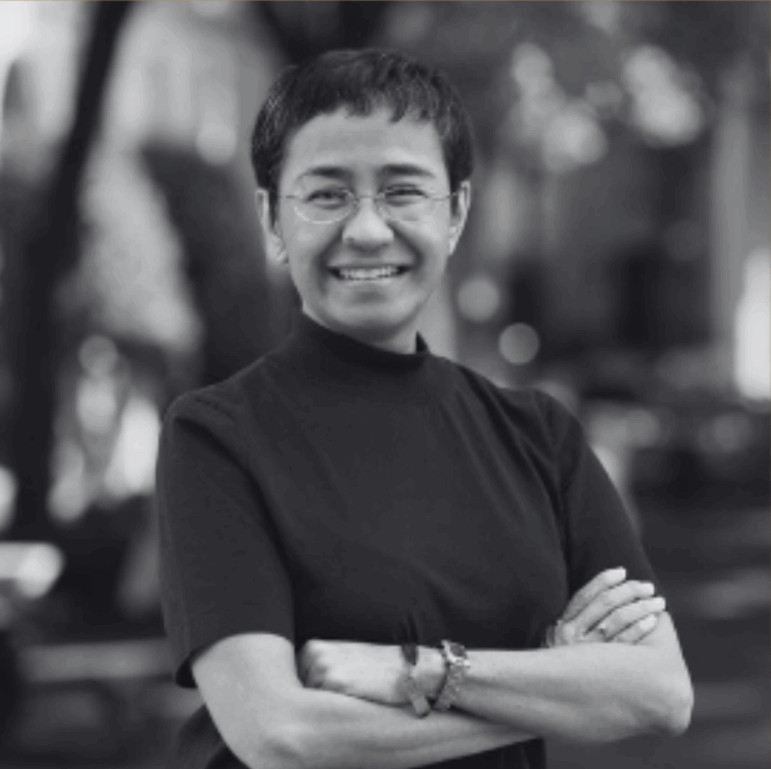
Image: Courtesy of Maria Ressa
The opening keynote address will be delivered by Nobel Peace Prize laureate Maria Ressa, the iconic co-founder of Rappler in the Philippines, and an investigative journalist who has since become a leading global voice for exposing disinformation and autocracy. That must-see speech on the future of the global investigative community will be followed by an all-Asian keynote panel including Nitin Sethi, founding editor of India’s The Reporter’s Collective, Rappler Executive Editor Glenda Gloria, and Wahyu Dhyatmika, CEO of Indonesia’s Tempo Digital, moderated by Malaysiakini’s Steven Gan.
- The conference will feature several groundbreaking China-specific sessions, including an anchor panel titled Investigating China: Documents, Data, and Access, which will show why — despite its severe data restrictions — the world’s second-largest economy is not, in fact, an unknowable “black box” for reporters. Instead, four prize-winning journalists on the China beat will share insights on creative pathways to penetrate this vast data veil, from the use of procurement notices to satellite imagery and court records. In addition to a dedicated networking session for China-beat reporters and editors and other practical panels, attendees can learn techniques to cover China and its influence from afar, in sessions such as Investigating China’s Foreign Investment and Supply Chains, which will showcase tools and alternative data sources to track Chinese investments and supply chains to projects around the world.
- One major South Asia-focused panel will offer crucial tips on how to investigate military regimes and ongoing military conflicts and border disputes. Titled Reporting on Conflict and Collaborating in a Disinformed World, this blockbuster session will feature a panel of experts from Pakistan, India, Sri Lanka, Nepal, and Bangladesh, who will explain how journalists can collaborate on conflict reporting to look beyond narratives that governments, corporate-controlled media outlets, and compromised big tech try to establish.
- Several data workshops headed by Asian data journalism experts will equip attendees with easy-to-use, practical tools for unearthing and measuring abuses and inequities, including No-Code Data Scraping Tool Kit, co-led by Thibi’s Aika Rey, and Introduction to Data Analysis with Google Sheets, taught by Rey and Thibi founder Yan Naung Oak. Several major panels will feature Asia-born superstar journalists working on urgent global topics. These include India’s Mitali Mukherjee, director of the Reuters Institute for the Study of Journalism; Sheila Coronel, co-founder of the Philippine Center for Investigative Journalism, who now serves as a professor of investigative journalism at Columbia University, and Hong Kong’s Karen Hao, author of the bestselling investigative book “Empire of AI: Inside the Reckless Race For Total Domination.” Hao will speak on the social and supply chain harms of AI, and the problems and opportunities it poses for reporters, in panels “Cracking the Black Box: Investigating Algorithms and AI Paradox: Newsroom Tool and Investigative Target. Yasuomi Sawa, a pioneering investigative journalist and journalism professor at Waseda University, will also speak on the future of watchdog reporting in East Asia, in the session Training New Generations of Investigative Journalists.
- Many multi-region panels at GIJC25 will shine a light on species of wrongdoing that are often undercovered in Asia. These include Investigating Online Gambling — which will include methods to dig into the boom in illicit Asian betting networks — and Uncovering Human Trafficking at Sea, where reporters from India and Indonesia will be among the expert voices on modern-day maritime slavery and exploitation, which is prevalent in many Asian fleets and shipping routes. Expert Asian speakers will also be heard in environmental sessions, such as How Digital Tools Help Uncover Environmental Stories, and in panels exploring misinformation, such as Collaborations to Fight Electoral Disinformation Campaigns.
Previously, GIJN hosted regional Asian investigative conferences in Manila (2014), Kathmandu (2016), and Seoul (2018). A fourth ‘Uncovering Asia’ conference had been planned for Kuala Lumpur in 2020 before it was canceled due to the COVID-19 pandemic, and that city will now host the largest international gathering of investigative journalists.
 Rowan Philp is GIJN’s global reporter and impact editor. A former chief reporter for South Africa’s Sunday Times, he has reported on news, politics, corruption, and conflict from more than two dozen countries around the world, and has also served as an assignments editor for newsrooms in the UK, US, and Africa.
Rowan Philp is GIJN’s global reporter and impact editor. A former chief reporter for South Africa’s Sunday Times, he has reported on news, politics, corruption, and conflict from more than two dozen countries around the world, and has also served as an assignments editor for newsrooms in the UK, US, and Africa.
Illustration: Nyuk was born in 2000 in South Korea. He is currently studying at the Department of Applied Art Education at Hanyang University in Seoul, where he also works as an illustrator. Since the exhibition at Hidden Place in 2021, he has participated in various illustration exhibitions. He is mainly interested in hand drawing, which represents the value of his art world.

